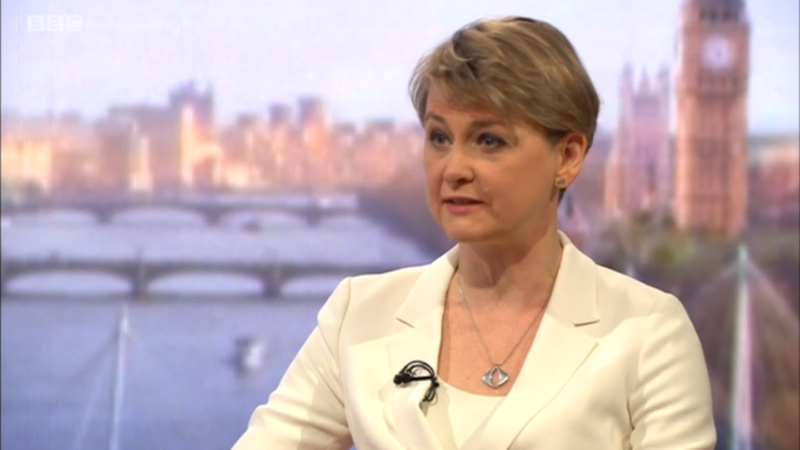

Changes in the workplace and the world of big business means Labour is at risk of losing its traditional support base, Yvette Cooper has warned.
Some of Labour’s current problems come from a failure to connect with working class voters who have been left behind by globalisation, Cooper argues in a new book published with the Changing Work Centre, joint initiative from the Fabians and Community, the union.
Labour is not inspiring those who want to work hard or offering them answers to the problems they face, the former leadership candidate said at the launch of Changing Work: Progressive ideas for the modern world of work.
The vote for Brexit from Labour’s heartlands, for example, serves as a reminder to the party that it must keep up with changing realities for those struggling in the 21st century economy, Cooper said.
The former leadership challenger offered a stark assessment, saying if Labour does not grasp these problems, it risks becoming too detached from its traditional voters.
“As the world of work is changing faster than ever, people are facing new insecurities, desperate exploitation and the reality of widening inequality. Trade unions aren’t reaching those in insecure work, including those who need workplace representation and protection most.
“Modern capitalism is failing to stop widening inequality and injustice. Sports Direct owner Mike Ashley is worth nearly £5bn – yet his business’ success has been built on zero hour contracts and clever ways to circumvent the minimum wage, we need new ways to build a fairer and more equal society that empower everyone and stop exploitation.
“The Labour party isn’t inspiring those who want to get on, or empowering those who feel angry at their lack of control of their lives. Right now we aren’t offering hope to those who want new opportunities or security to those who feel threatened by change.
“Just as the Labour party grew up to offer a powerful response to both the opportunities and the inequality of the industrial revolution, now our revival depends on having a new and strong response to the opportunities and inequalities of the digital age.”
The first book from the centre, edited by Cooper, comes with contributions from across the Labour movement. Authors include former Morrisons exec Norman Pickavance, LoveFilm founder, Simon Franks, John Park, assistant general secretary of trade union Community, Trade unionist, Scarlet Harris challenges a male-dominated digital economy and Cameron Tait, head of the Changing Work Centre.
Both candidates in the current leadership contest have focused on make the economy work better for people on low incomes. Jeremy Corbyn and Owen Smith have both pledged to reduce inequality and re-industrialise the North of England. Smith today promised to re-introduce a Ministry of Labour if he were elected, but Corbyn’s team claimed this was a copy of policy developed by the current leadership team.




More from LabourList
‘Labour is being badly misled on housing’
Reeves bets on patience over populism
‘Energy efficiency changes must work for older private renters’